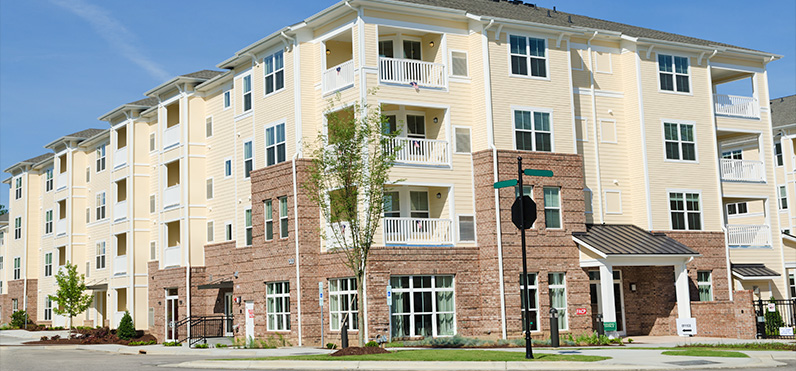Prior articles from this office have addressed the importance of the preparation and organization needed for a condominium trust or association to amend its condominium documents—i.e., the master deed and declaration of trust (or the bylaws that typically are included in the declaration of trust). But what happens when a carefully crafted amendment is approved by the required vote of unit owners and then is challenged in court by a dissenting unit owner? Under Massachusetts law, it is not enough that the condominium board strictly follow the amendment procedures set forth in the condominium documents. To survive a court challenge, the amendment must also satisfy the standard imposed by the courts when an amendment is challenged. That standard is “equitable reasonableness.”
Under Massachusetts law, it is not enough that the condominium board strictly follow the amendment procedures set forth in the condominium documents. To survive a court challenge, the amendment must also satisfy the standard imposed by the courts when an amendment is challenged. That standard is “equitable reasonableness.”
What does the term “equitable reasonableness” mean? The explanation from the courts does not give much guidance. According to the Massachusetts Supreme Judicial Court (borrowing the definition used by Florida courts), it means “[i]f a rule is reasonable the association can adopt it; if not, it cannot.” Noble v. Murphy, 34 Mass. App. Ct. 452, 457 (1993) (citation omitted). The Court further explained, again borrowing from Florida law, that amendments imposing restrictions on unit owners are reasonable only when they are “reasonably related to the promotion of the health, happiness and peace of mind of the unit owners.” Id. (citation omitted). Furthermore, the amendment is invalid if it “violate[s] a right guaranteed by any fundamental public policy or constitutional provision.” Board of Managers of Old Colony Village Condo v. Preu, 80 Mass. App. Ct. 728, 730 (2011). Presumably, a condominium board that proposes a bylaw or other amendment believes it to be reasonable. The key point, however, is that in a court challenge, the person who decides whether an amendment is reasonable is the judge.
An interesting decision about a condominium bylaw amendment was recently issued by the Massachusetts Superior Court in the matter of JAH Realty, LLC v. Trustees of The 25 Channel Center Condominium Trust. At issue was a bylaw amendment that applied only to the condominium’s sole commercial use unit. After purchasing the commercial unit, the owner leased it to a child daycare business. Upon learning of this new commercial use, the insurance carrier for the condominium trust indicated it would not renew the condominium’s insurance policy without an indemnification agreement from the commercial unit owner. The condominium board was unable to reach an agreement with the commercial unit owner and instead proposed an amendment to the condominium bylaws that, among other things, required the commercial unit owner to indemnify the condominium trust against liability arising from the use of the commercial unit. The amendment was properly ratified by the unit owners.
The commercial unit owner filed a lawsuit, seeking to annul the bylaws amendment. The judge ruled in the board’s favor, finding that such an amendment satisfied the reasonableness test. The judge reasoned that commercial businesses, and particularly daycare operations, create legitimate liability concerns that do not exist with residential units, and therefore the indemnification amendment was valid. The judge was not swayed by the commercial unit owner’s argument that the indemnification obligation was imposed only after it had invested hundreds of thousands of dollars to remodel the unit to accommodate the daycare business. The judge concluded that the new daycare business use created the need for indemnification, and therefore it was not unreasonable for the condominium to adopt the amendment imposing the new obligation. Likewise, the judge was not persuaded by the fact that the commercial unit owner carried substantial insurance for the benefit of the condominium and board of trustees. The judge determined that, absent the indemnification amendment, the condominium would be at risk of losing its own insurance, and that consideration outweighed the large insurance benefits offered by the commercial unit owner. Last, the judge agreed with the board that the commercial unit owner’s concern as to a negative impact on the market value of its unit was outweighed by that owner’s knowledge, when purchasing its unit, that the board was obligated to maintain insurance for the condominium, and that it was reasonable for the board to “fulfill its mandate and protect the residential unit owners” by obtaining the amendment to avoid losing the condominium’s insurance policy.
But it was not a complete victory for the condominium board. The judge ruled in favor of the commercial unit owner and struck down certain provisions of the bylaws amendment, including a provision that gave the trustees sole discretion to charge the commercial unit owner for any increase in insurance premiums incurred by the trust in providing adequate insurance for the condominium. The judge suggested, however, it would be reasonable to adopt an amendment limiting such obligation to increased costs incurred by the trust as a direct consequence of the daycare facility use in the commercial unit.
When faced with the task of amending any of the governing documents of a condominium, it is critically important to follow the procedures as laid out in the documents. It is equally important to consider whether the proposed amendment will pass the reasonableness test if it is challenged in court. The analysis involves a broad spectrum of factors, and condominium boards considering an amendment are well advised to seek the advice of an attorney to learn more about whether the proposed amendment might survive such a challenge.
A copy of the court decision in JAH Realty LLC v. Trustees of The 25 Channel Center Condominium Trust may be found here at this link.


